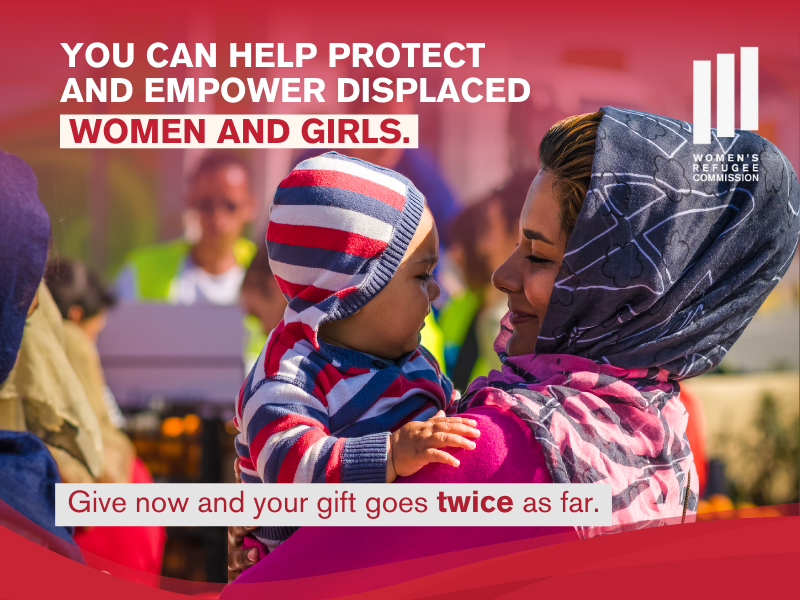As 2012 comes to a close, check out some highlights of the Women's Refugee Commission’s accomplishments and impact over the past year.

In Ethiopia, Uganda and Tanzania we met with refugee adolescent girls to find out, directly from them, what challenges they face and their ideas for solutions. In this picture, Congolese girls in Tanzania are doing a mapping exercise, explaining where they feel safe and where they feel in danger in their community. With your support, we will be setting up projects in the three countries aimed at finding safe spaces for them and enhancing their self-esteem and social networks so that they can better protect themselves and develop the skills they need to become healthy and strong adults.


More than half of refugees now live in urban areas rather than in refugee camps. Refugee youth in cities find it hard to get the education and skills training they need to get jobs so they can support themselves. Based on our research in Nairobi, Panama City and Cairo—where we talked extensively with young people—we have developed guidance that people working with refugee youth in urban areas can use to improve their programs. These young women selling KenChic brand chicken sausages on the street in Nairobi told the Women’s Refugee Commission they were proud to finally be making their own money.


This illustration above is from a training for community health workers to provide care for survivors of sexual violence, which we held in collaboration with UNICEF. Illustration by Stacey Patino.
We worked with local groups on the border of Thailand and Burma to develop an innovative model of health care. We trained members of the refugee community to provide medical attention and support to women and girls who have experienced sexual violence–bringing reproductive health one step closer to the community. UNICEF and other agencies are impressed with our approach, and are embarking on additional studies in areas that have been affected by armed conflict. This is helping us advance our efforts to bring reproductive health care one step closer to the community.


Here in the U.S., effective advocacy and leadership by our Migrant Rights and Justice program in Washington resulted in an important victory for the rights of women and children held in immigration detention—many of whom are at risk of sexual abuse. After sustained advocacy, the White House instructed the Department of Homeland Security to issue regulations on the Prison Rape Elimination Act (PREA), ensuring that strong standards against sexual assault apply to all people who are confined. These regulations should go a long way in protecting immigrants who are detained in U.S. facilities.


At our Voices of Courage Awards luncheon in May, we honored two inspiring refugee women for their work to improve the lives of adolescent girls: Olga Cantarero of Nicaragua (3rd from left), now in Texas; and Rim Tekie Solomon of Eritrea (right), now living in Israel. Dina Dublon (2nd from left) was honored for her pioneering work in advancing women and promoting gender equity in both the corporate and nonprofit worlds.


One of our favorite memories of 2012 was the incredible performance by Congolese sisters Adele and Sandra at our Voices of Courage Awards luncheon. Listen to them sing about the courage and resilience of survivors of war in this clip from the event.


